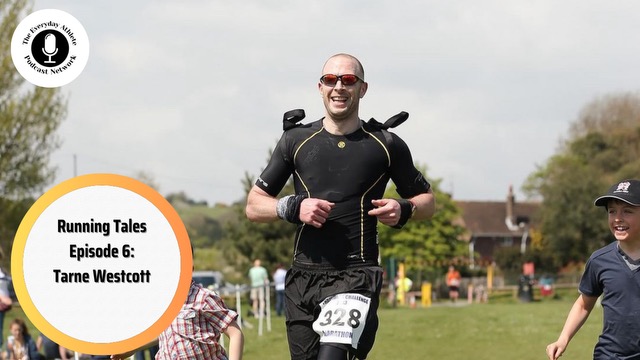Conquering Ultra Running: Lessons from Tarne Wescott | Running Tales

Endurance athletes often face the daunting task of pushing their physical and mental limits to achieve seemingly impossible goals. In the latest episode of the ‘Running Tales’ podcast, hosted by Craig Lewis, ultra runner Tarne Wescott shares his remarkable journey of conquering ultra running. Whether you’re training for a marathon, an ultra-distance event, or simply looking for inspiration to chase your dreams, Tarne’s story offers valuable lessons that will ignite your passion for running.
From Marathoner to Ultra Runner: A Journey of Growth
Tarne Wescott’s running journey began with the London Marathon, an achievement that many runners dream of. However, Tarne’s ambitions didn’t stop there. He transitioned from road marathons to the challenging world of ultra running, where he discovered a new passion for pushing his limits. His progression from marathons to ultra marathons, including events like the Marathon des Sables and a grueling race in Nepal, showcases his relentless pursuit of growth and adventure.
Throughout his journey, Tarne encountered several DNFs (Did Not Finish), which many would view as setbacks. However, he embraced these experiences as learning opportunities, using them to fuel his growth as an athlete. His story reminds us that failure is not the end but a stepping stone toward success. For endurance athletes, Tarne’s mindset is a powerful reminder to view every challenge as a chance to learn and improve.
The Mental Challenges of Ultra Running
The Ultra-Trail du Mont-Blanc (UTMB) is the pinnacle of ultra running, and for Tarne, it represents the ultimate challenge. Despite three unfinished attempts at UTMB, his determination remains unwavering. His recent completion of a 100-mile race in the Swiss Alps served as crucial preparation for his next attempt at this iconic race. The mountainous terrain and unpredictable conditions of such races test not only physical endurance but also mental resilience.
Tarne emphasizes the importance of mental preparation in ultra running. The ability to stay positive and focused, even when the odds seem insurmountable, is what separates those who finish from those who don’t. His experiences highlight the need for endurance athletes to cultivate a strong mental game. This is often the difference that can carry you through when the body wants to quit.
ADVERTISEMENT

Preparing for the Race: Gear and Strategy
For any endurance athlete, preparation is key to success, especially if you plan on conquering ultra running. In the podcast, Tarne provides a detailed breakdown of his race preparation. This includes the essential gear he relied on during the Swiss Alps 100-mile race. From using a Salomon 12-litre vest to packing spare equipment like poles, torches, and trainers, Tarne’s advice is invaluable for anyone planning to tackle a challenging race.
Beyond the physical preparation, Tarne also discusses the importance of balancing the demands of work, family, and training. This holistic approach ensures that athletes are not only physically ready but also mentally and emotionally prepared to take on the challenges of ultra running.
Running for the Love of It: Tarne’s Philosophy
As Tarne looks ahead to future races, including the UTMB ballot for next year and the Centurion 50 slam events, he remains grounded in his philosophy of running for personal enjoyment. Despite the commercial pressures within the ultra running community, Tarne stays true to his values. He is running not for accolades but for the love of the sport.
His thoughts on the commercialization of ultra running, particularly in events like UTMB, provide food for thought for every athlete. Tarne’s story is a powerful reminder that while the world of endurance sports may be competitive, the true joy of running comes from within.
Finding Motivation in the Silence: Running Without Music
In the final segment of the podcast, Tarne shares his unique approach to running without music. While many runners rely on music for motivation, Tarne prefers to immerse himself in the natural surroundings. He uses the silence to connect with the environment and his inner thoughts. However, he does admit to using music as an emergency boost during particularly tough races.
This choice reflects Tarne’s belief that running is not just a physical activity but also a mental and spiritual journey. For endurance athletes, his approach offers a different perspective on finding motivation and pushing through the toughest moments of a race.
Tarne Wescott’s journey or conquering ultra running is proof of resilience and mental strength. His story will inspire you to chase your dreams, overcome your failures, and keep pushing toward your goals.
ADVERTISEMENT





